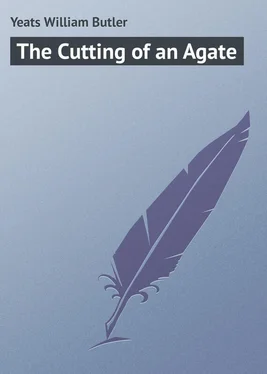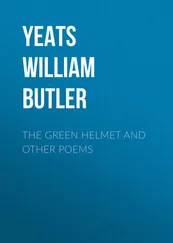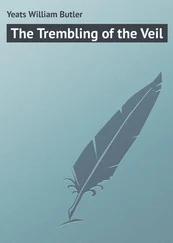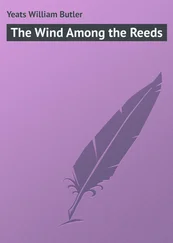William Yeats - The Cutting of an Agate
Здесь есть возможность читать онлайн «William Yeats - The Cutting of an Agate» — ознакомительный отрывок электронной книги совершенно бесплатно, а после прочтения отрывка купить полную версию. В некоторых случаях можно слушать аудио, скачать через торрент в формате fb2 и присутствует краткое содержание. Жанр: foreign_prose, на английском языке. Описание произведения, (предисловие) а так же отзывы посетителей доступны на портале библиотеки ЛибКат.
- Название:The Cutting of an Agate
- Автор:
- Жанр:
- Год:неизвестен
- ISBN:нет данных
- Рейтинг книги:4 / 5. Голосов: 1
-
Избранное:Добавить в избранное
- Отзывы:
-
Ваша оценка:
- 80
- 1
- 2
- 3
- 4
- 5
The Cutting of an Agate: краткое содержание, описание и аннотация
Предлагаем к чтению аннотацию, описание, краткое содержание или предисловие (зависит от того, что написал сам автор книги «The Cutting of an Agate»). Если вы не нашли необходимую информацию о книге — напишите в комментариях, мы постараемся отыскать её.
The Cutting of an Agate — читать онлайн ознакомительный отрывок
Ниже представлен текст книги, разбитый по страницам. Система сохранения места последней прочитанной страницы, позволяет с удобством читать онлайн бесплатно книгу «The Cutting of an Agate», без необходимости каждый раз заново искать на чём Вы остановились. Поставьте закладку, и сможете в любой момент перейти на страницу, на которой закончили чтение.
Интервал:
Закладка:
When I asked the little boy who had shown me the pathway up the Hill of Allen if he knew stories of Finn and Oisin, he said he did not, but that he had often heard his grandfather telling them to his mother in Irish. He did not know Irish, but he was learning it at school, and all the little boys he knew were learning it. In a little while he will know enough stories of Finn and Oisin to tell them to his children some day. It is the owners of the land whose children might never have known what would give them so much happiness. But now they can read Lady Gregory’s book to their children, and it will make Slieve-na-man, Allen, and Benbulben, the great mountain that showed itself before me every day through all my childhood and was yet unpeopled, and half the country-sides of south and west, as populous with memories as her Cuchulain of Muirthemne will have made Dundealgan and Emain Macha and Muirthemne; and after a while somebody may even take them to some famous place and say, ‘This land where your fathers lived proudly and finely should be dear and dear and again dear;’ and perhaps when many names have grown musical to their ears, a more imaginative love will have taught them a better service.
III
I praise but in brief words the noble writing of these books, for words that praise a book, wherein something is done supremely well, remain, to sound in the ears of a later generation, like the foolish sound of church bells from the tower of a church when every pew is full.
1903.PREFACE TO THE FIRST EDITION OF THE WELL OF THE SAINTS
Six years ago I was staying in a students’ hotel in the Latin Quarter, and somebody, whose name I cannot recollect, introduced me to an Irishman, who, even poorer than myself, had taken a room at the top of the house. It was J. M. Synge, and I, who thought I knew the name of every Irishman who was working at literature, had never heard of him. He was a graduate of Trinity College, Dublin, too, and Trinity College does not, as a rule, produce artistic minds. He told me that he had been living in France and Germany, reading French and German Literature, and that he wished to become a writer. He had, however, nothing to show but one or two poems and impressionistic essays, full of that kind of morbidity that has its root in too much brooding over methods of expression, and ways of looking upon life, which come, not out of life, but out of literature, images reflected from mirror to mirror. He had wandered among people whose life is as picturesque as the middle ages, playing his fiddle to Italian sailors, and listening to stories in Bavarian woods, but life had cast no light into his writings. He had learned Irish years ago, but had begun to forget it, for the only language that interested him was that conventional language of modern poetry which has begun to make us all weary. I was very weary of it, for I had finished The Secret Rose , and felt how it had separated my imagination from life, sending my Red Hanrahan, who should have trodden the same roads with myself, into some undiscoverable country. I said, ‘Give up Paris, you will never create anything by reading Racine, and Arthur Symons will always be a better critic of French literature. Go to the Arran Islands. Live there as if you were one of the people themselves; express a life that has never found expression.’ I had just come from Arran, and my imagination was full of those grey islands where men must reap with knives because of the stones.
He went to Arran and became a part of its life, living upon salt fish and eggs, talking Irish for the most part, but listening also to the beautiful English which has grown up in Irish-speaking districts, and takes its vocabulary from the time of Malory and of the translators of the Bible, but its idiom and its vivid metaphor from Irish. When Mr. Synge began to write in this language, Lady Gregory had already used it finely in her translations of Dr. Hyde’s lyrics and plays, or of old Irish literature, but she had listened with different ears. He made his own selection of word and phrase, choosing what would express his own personality. Above all, he made word and phrase dance to a very strange rhythm, which will always, till his plays have created their own tradition, be difficult to actors who have not learned it from his lips. It is essential, for it perfectly fits the drifting emotion, the dreaminess, the vague yet measureless desire, for which he would create a dramatic form. It blurs definition, clear edges, everything that comes from the will, it turns imagination from all that is of the present, like a gold background in a religious picture, and it strengthens in every emotion whatever comes to it from far off, from brooding memory and dangerous hope. When he brought The Shadow of the Glen , his first play, to the Irish National Theatre Society, the players were puzzled by the rhythm, but gradually they became certain that his woman of the glens, as melancholy as a curlew, driven to distraction by her own sensitiveness, her own fineness, could not speak with any other tongue, that all his people would change their life if the rhythm changed. Perhaps no Irish countryman had ever that exact rhythm in his voice, but certainly if Mr. Synge had been born a countryman, he would have spoken like that. It makes the people of his imagination a little disembodied; it gives them a kind of innocence even in their anger and their cursing. It is part of its maker’s attitude towards the world, for while it makes the clash of wills among his persons indirect and dreamy, it helps him to see the subject-matter of his art with wise, clear-seeing, unreflecting eyes; to preserve the innocence of good art in an age of reasons and purposes. Whether he write of old beggars by the roadside, lamenting over the misery and ugliness of life, or of an old Arran woman mourning her drowned sons, or of a young wife married to an old husband, he has no wish to change anything, to reform anything; all these people pass by as before an open window, murmuring strange, exciting words.
If one has not fine construction, one has not drama, but if one has not beautiful or powerful and individual speech, one has not literature, or, at any rate, one has not great literature. Rabelais, Villon, Shakespeare, William Blake, would have known one another by their speech. Some of them knew how to construct a story, but all of them had abundant, resonant, beautiful, laughing, living speech. It is only the writers of our modern dramatic movement, our scientific dramatists, our naturalists of the stage, who have thought it possible to be like the greatest, and yet to cast aside even the poor persiflage of the comedians, and to write in the impersonal language that has come, not out of individual life, nor out of life at all, but out of necessities of commerce, of parliament, of board schools, of hurried journeys by rail.
If there are such things as decaying art and decaying institutions, their decay must begin when the element they receive into their care from the life of every man in the world, begins to rot. Literature decays when it no longer makes more beautiful, or more vivid, the language which unites it to all life, and when one finds the criticism of the student, and the purpose of the reformer, and the logic of the man of science, where there should have been the reveries of the common heart, ennobled into some raving Lear or unabashed Don Quixote. One must not forget that the death of language, the substitution of phrases as nearly impersonal as algebra for words and rhythms varying from man to man, is but a part of the tyranny of impersonal things. I have been reading through a bundle of German plays, and have found everywhere a desire not to express hopes and alarms common to every man that ever came into the world, but politics or social passion, a veiled or open propaganda. Now it is duelling that has need of reproof; now it is the ideas of an actress, returning from the free life of the stage, that must be contrasted with the prejudice of an old-fashioned town; now it is the hostility of Christianity and Paganism in our own day that is to find an obscure symbol in a bell thrown from its tower by spirits of the wood. I compare the work of these dramatists with the greater plays of their Scandinavian master, and remember that even he, who has made so many clear-drawn characters, has made us no abundant character, no man of genius in whom we could believe, and that in him also, even when it is Emperor and Galilean that are face to face, even the most momentous figures are subordinate to some tendency, to some movement, to some inanimate energy, or to some process of thought whose very logic has changed it into mechanism – always to something other than human life.
Читать дальшеИнтервал:
Закладка:
Похожие книги на «The Cutting of an Agate»
Представляем Вашему вниманию похожие книги на «The Cutting of an Agate» списком для выбора. Мы отобрали схожую по названию и смыслу литературу в надежде предоставить читателям больше вариантов отыскать новые, интересные, ещё непрочитанные произведения.
Обсуждение, отзывы о книге «The Cutting of an Agate» и просто собственные мнения читателей. Оставьте ваши комментарии, напишите, что Вы думаете о произведении, его смысле или главных героях. Укажите что конкретно понравилось, а что нет, и почему Вы так считаете.












